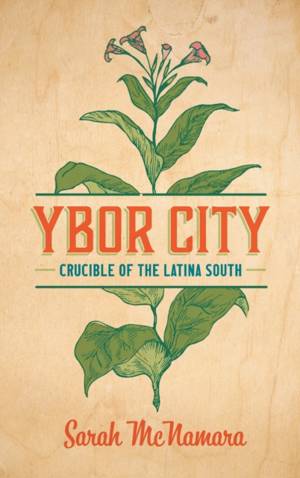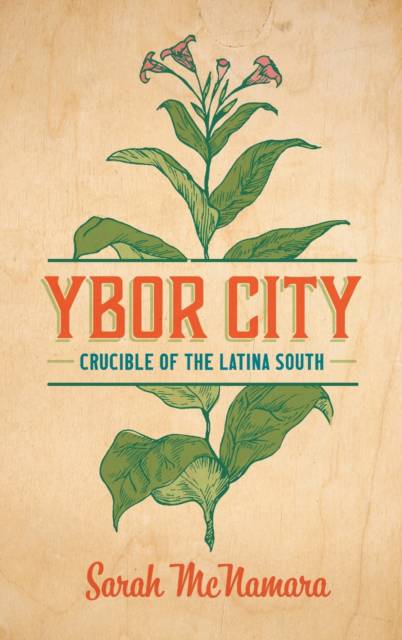
- Afhalen na 1 uur in een winkel met voorraad
- Gratis thuislevering in België vanaf € 30
- Ruim aanbod met 7 miljoen producten
- Afhalen na 1 uur in een winkel met voorraad
- Gratis thuislevering in België vanaf € 30
- Ruim aanbod met 7 miljoen producten
Zoeken
Omschrijving
Decades before Miami became Havana USA, a wave of leftist, radical, working-class women and men from prerevolutionary Cuba crossed the Florida Straits, made Ybor City the global capital of the Cuban cigar industry, and established the foundation of latinidad in the Sunshine State. Located on the eastern edge of Tampa, Ybor City was a neighborhood of cigar workers and Caribbean revolutionaries who sought refuge against the shifting tides of international political turmoil during the early half of the twentieth century.
Historian Sarah McNamara tells the story of immigrant and U.S.-born Latinas/os who organized strikes, marched against fascism, and criticized U.S. foreign policy. While many members of the immigrant generation maintained their dedication to progressive ideals for years to come, those who came of age in the wake of World War II distanced themselves from leftist politics amidst the Red Scare and the wrecking ball of urban renewal. This portrait of the political shifts that defined Ybor City highlights the underexplored role of women's leadership within movements for social and economic justice as it illustrates how people, places, and politics become who and what they are.
Historian Sarah McNamara tells the story of immigrant and U.S.-born Latinas/os who organized strikes, marched against fascism, and criticized U.S. foreign policy. While many members of the immigrant generation maintained their dedication to progressive ideals for years to come, those who came of age in the wake of World War II distanced themselves from leftist politics amidst the Red Scare and the wrecking ball of urban renewal. This portrait of the political shifts that defined Ybor City highlights the underexplored role of women's leadership within movements for social and economic justice as it illustrates how people, places, and politics become who and what they are.
Specificaties
Betrokkenen
- Auteur(s):
- Uitgeverij:
Inhoud
- Aantal bladzijden:
- 266
- Taal:
- Engels
- Reeks:
Eigenschappen
- Productcode (EAN):
- 9781469668154
- Verschijningsdatum:
- 11/04/2023
- Uitvoering:
- Hardcover
- Formaat:
- Genaaid
- Afmetingen:
- 156 mm x 234 mm
- Gewicht:
- 585 g

Alleen bij Standaard Boekhandel
+ 335 punten op je klantenkaart van Standaard Boekhandel
Beoordelingen
We publiceren alleen reviews die voldoen aan de voorwaarden voor reviews. Bekijk onze voorwaarden voor reviews.











